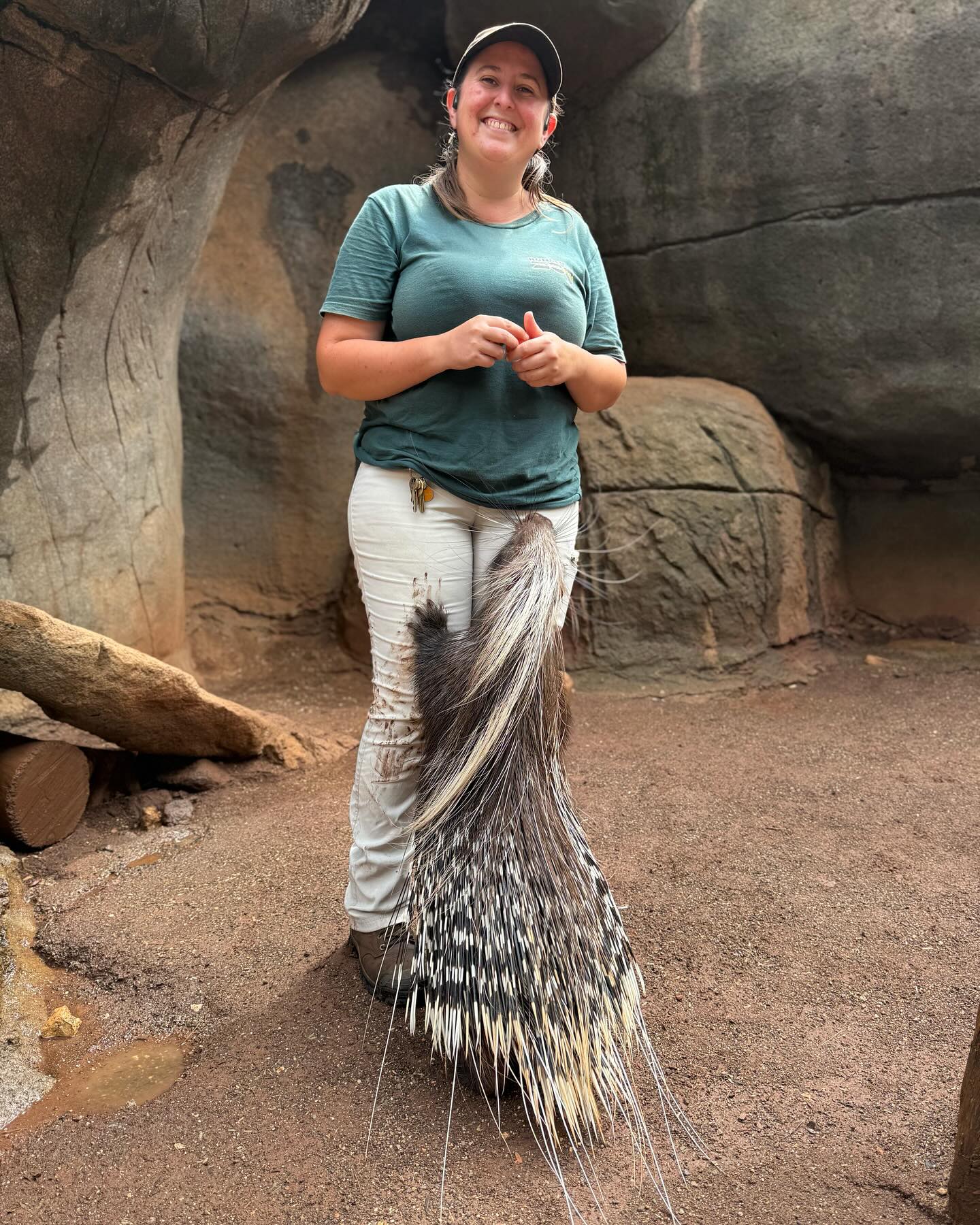- Rainy weather challenges zoo staff, impacting animal care and daily operations.
- Training and enrichment activities are crucial for captive animal welfare, regardless of weather conditions.
- Understanding the biology and behavior of African-crested porcupines is essential for effective management and care.
- The role of zoo keepers in wildlife conservation extends beyond daily care, involving public education and species preservation.
Rainy days may conjure images of cozy interiors and warm beverages for many, but for zoo keepers, rain can mean dealing with muddy paws and more significant operational challenges. Muddy conditions can affect daily routines, but keepers like Sam remain undeterred in their dedication to animal care and training sessions. This article examines the impact of rainy weather on zoo operations, highlighting the devotion of keepers to maintaining high welfare standards, the significance of training for captive animals, and the biology and behavior of African-crested porcupines like Grunt and Po.
Rainfall can radically alter the daily routines in a zoo, turning smooth pathways into slippery obstacles and clean enclosures into muddy quagmires. This is particularly pertinent when dealing with terrestrial animals like African-crested porcupines whose enclosures may become challenging to clean. Mud may seem a minor inconvenience, but for zoo staff, it poses a significant challenge in maintaining enclosures, conducting routine health checks, and ensuring the safety of both animals and visitors. Effective zoo management involves planning and adaptability, with staff prepared to modify activities like feeding schedules and enrichment sessions in response to weather conditions. Animal welfare remains paramount, and staff must balance the demands of daily tasks with the unpredictable dynamics of weather-driven changes.
Training and enrichment are key components of zoo animal care, providing mental stimulation and opportunities for animals to exhibit natural behaviors. For African-crested porcupines, training offers behavioral engagement through tactile stimulation, problem-solving exercises, and interaction with keepers. Even on rainy days, trainers like Keeper Sam persevere with sessions to reinforce positive behavior and maintain animal welfare. Training helps porcupines build trust with their keepers, which is vital for conducting health checks or administering medical care. Despite added obstacles from rain, committed keepers adapt training strategies to suit wet conditions, illustrating their dedication to upholding quality standards for animal care.
African-crested porcupines (Hystrix cristata) are large rodents native to central and northern Africa. Characterized by their quills, they possess a unique defense mechanism against predators. When threatened, porcupines rattle their quills, which are modified hairs made of keratin, to ward off potential threats. An understanding of porcupine biology and behavior is indispensable for keepers, shaping their approach to care and interaction. These nocturnal creatures are herbivores, feeding on roots, tubers, bark, and fallen fruit. Knowledge of their dietary preferences aids keepers in designing appropriate feeding regimens that meet nutritional needs. Additionally, African-crested porcupines possess a strong sense of smell and hearing, which are crucial for communication and environmental awareness. Familiarity with these sensory abilities informs keepers’ approach to enrichment activities, designing environments that stimulate the porcupines’ senses and promote natural foraging behaviors.
The role of a zoo keeper extends beyond direct animal care, encompassing public education and wildlife conservation. Zoo initiatives often focus on raising awareness about the species they house, advocating for biodiversity conservation and habitat preservation. African-crested porcupines, while not currently endangered, serve as ambassadors for broader conservation issues, highlighting the importance of protecting natural habitats that support diverse animal populations. Keepers, like Sam, engage with visitors to foster understanding and appreciation of the species, enhancing educational outreach through interactive experiences and informative talks. This educational component is critical in shaping public attitudes toward conservation and inspiring collective action to address global environmental challenges.
Keeper Sam’s dedication amidst challenging rainy conditions exemplifies the unwavering commitment of zoo staff to animal welfare, conservation, and education. Rainy days may lead to muddy paws and keepers, but they do not diminish the passion and perseverance required to deliver exceptional care. Understanding the behavior and biology of African-crested porcupines like Grunt and Po enables keepers to tailor their approaches, enhancing the quality of life for these fascinating creatures while contributing to broader conservation goals.
*****
Source Description
Rainy days = muddy paws and very muddy keepers! Keeper Sam isn’t letting the weather stop her from spending quality time with Grunt and Po, our African-crested porcupines. Training still happens—just with a little extra splatter! 🐾


